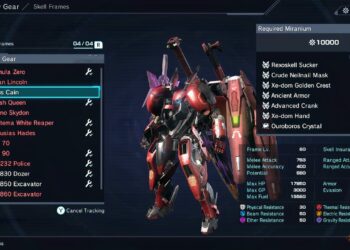Embracing Underdog Characters in Dungeons & Dragons
In Dungeons & Dragons, sometimes it’s more entertaining to play a character who’s less powerful than the typical overpowered heroes. While taking on the role of a level 20 wizard, capable of reshaping reality, is undeniably fun, experienced players often find a unique joy in portraying a character akin to a non-playable character (NPC).
If you and your group are getting ready to launch a new D&D campaign, consider discussing the idea of starting at level zero instead of level one. Below is a comprehensive guide to help you create level zero characters.
Understanding Level Zero Characters
Creating a level zero character introduces several key differences compared to starting at level one:
- No Class Selection: Your character will not choose a class until they reach level one, meaning you won’t have access to standard D&D abilities right away.
- Lower Ability Scores: Starting ability scores and modifiers will generally be weaker.
- Different Starting Gear: At level zero, you may not begin with weapons or other significant equipment.
The main concept of this approach is to create characters that act like NPCs, unable to greatly influence the world around them.
Tips for a Successful Start
While crafting these characters, it’s important to encourage players to think ahead regarding the classes they want to adopt once they level up, unless you plan to keep the characters at level zero indefinitely.
How to Create Level Zero Characters
Gather your players—whether individually or as a group—and ensure they all grasp the differences mentioned above. Here’s a breakdown of how to create a level zero character:
-
Determine Ability Scores
- Roll your starting ability scores, which will influence your character’s strengths and weaknesses.
-
Fill in Armor Class (AC) and Hit Points (HP)
- Using the rolled ability scores, calculate your Armor Class and Hit Points.
-
Select a Species
- Choose a species as normal, which will include all of its features and traits.
-
Choose a Background
- Pick a background that reflects your life before becoming adventurers. This is crucial for character development.
- Craft a Backstory
- Collaborate with your DM to create a backstory for your character that also aligns with the class you hope to take at level one.
Example Steps for Character Creation:
| Step | Details |
|---|---|
| Determine Ability Scores | Roll your starting ability scores. |
| Fill in AC and HP | Armor Class = 10 + Dexterity Modifier; Hit Points = 6 + Constitution Modifier. |
| Select a Species | Choose a species with its traits. |
| Select a Background | Choose a background relevant to your character’s previous life. |
| Determine Backstory | Work with your DM to craft your character’s history and future. |
Adjusting Ability Scores for Level Zero
Determine your ability scores using these methods while keeping in mind that level zero characters should be weaker than their level one counterparts:
- Standard Array: Use 13, 12, 10, 10, 9, and 8 instead of the standard values.
- Random Generation: Roll three D6 instead of four and drop the lowest die.
- Point Cost System: Start with 21 points rather than 27 to assign to abilities, and remove the higher scores from the charts.
Transitioning from Level Zero to Level One
After completing some sessions with level zero characters, find an opportunity to let your players transition to level one. This ‘level-up’ moment should feel significant and personal, allowing each character to gain their chosen class.
Here are some ideas for ‘level up’ scenarios:
- Wizard: A gnome discovers a mysterious spellbook that allows them to cast real spells.
- Fighter: Amidst a dangerous encounter, a character finds a rusty sword and realizes they excel in combat.
- Bard: An interaction with a beloved performer results in a magical lute and new musical knowledge.
Conclusion
Starting at level zero can breathe new life into your Dungeons & Dragons game. It allows players to develop their characters organically, providing room for growth and deeper narratives. As you build your characters, keep the focus on collaboration and creativity to create a memorable gaming experience.





